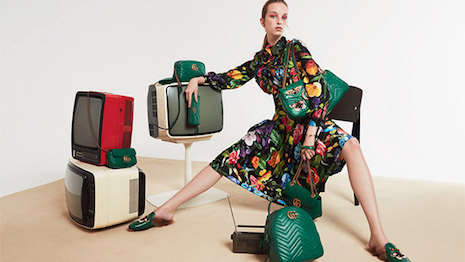 Experiential events have benefited from technology. Image credit: Printemps
Experiential events have benefited from technology. Image credit: Printemps
NEW YORK – Despite fears of missing out, a shift in behavior has made it difficult for marketers to draw consumers from their homes, increasing the necessity of events being more eventful.
In conversation with the former CEO of Tribeca Enterprises, the executive director of The Wharton School’s Future of Advertising program discussed how experiential trends have led to massive opportunities for marketers. Paired with technology, event marketing such as live storytelling has become more inclusive through participation and interactive efforts.
"Technology allows for a community to happen in real time,"said Andrew Essex, former CEO of Tribeca Enterprises and author of The End of Advertising. "It’s live tech, it's experiential tech.
"There’s an opportunity for brands to integrate this in a way that is native, applied to an event," he said. "That’s happening right now, we look for haptic feedback, or a sensory response."
Eventual experiences
During Ad:tech 2017 Nov. 2, The Wharton School’s Catharine Findiesen Hays spoke with Mr. Essex about his experience at Tribeca Enterprises, which produces the annual Tribeca Film Festival in New York.
As an ad-man, Mr. Essex, who co-founded Droga5, worked to take the antiquated term “film,” and turn the Tribeca Film Festival into a not-to-be-missed event, despite consumer behavior gravitating toward Netflix and on-demand viewing.
Technology provided an opportunity for Tribeca Film Festival to make its events more eventful. The native integration of experiential touchpoints such as gaming, virtual reality and mobile applications were a natural fit for the festival’s event programming.
One example shared by Mr. Essex was the Tribeca Film Festival’s use of IBM Watson to crowdsource and find solutions to creative problems faced by filmmakers in attendance. In the case of IBM, the brand was given an opportunity to inject itself into an event setting organically, while offering artificial intelligence-powered answers to creative issues.
Participation and interaction during live events has also been heightened by live feeds and streaming.
Tribeca Film Festival screens movies, full stop, explained Mr. Essex.
The problem is consumers are willing to wait for a film to become available on Netflix, for instance, and no longer want to go out of their way to see an unknown movie. A screening of a classic film faces the same problem because they are readily available outside theaters and within consumers’ homes.
But, an interactive event is more attractive to consumers than just sitting in a dark theater.
To this point, Mr. Essex shared about how Tribeca Film Festival invited the original cast of The Godfather to attend a screening event at Radio City Music Hall, seating the iconic actors on stage.
For the approximately 6,000 guests in attendance, it was a once-in-a-lifetime opportunity, but Tribeca Film Festival opted to widen the experience’s reach through live-streaming platform Periscope to tap into the maximum possible audience.
Film frenzies
Marketers in the luxury space have often turned to film to engage and support creative talent.
In 2015, French fashion house Chanel extended its relationship with Tribeca Enterprises’ Tribeca Film Festival to support women in film.
Chanel’s “Through Her Lens: The Tribeca Chanel Women’s Filmmaker Program” was a three-day workshop in collaboration with Pulse Films and Tribeca Film Institute, and was designed to support emerging United States-based female writers and directors.
While Chanel has maintained a relationship with Tribeca Film Festival for a number of years, its establishment of a support network for budding women in film authenticates its involvement (see story).
Also, luxury brands’ relationships with film have been used to engage and delight consumers through hands-on experiences.
Italian fashion house Fendi, for instance, is incorporating its cinematic ties into a temporary venture staged at its Rome headquarters.
From Oct. 27 through March 25, 2018, fans of Fendi can drop by the interactive “Fendi Studios” exhibition at the Palazzo della Civiltà Italiana in Rome. Here, guests can enjoy daily film screenings and pose for Instagram-worthy snapshots with Fendi and movie-magic props set against a green screen (see story).
"The storytellers are at the top of the food chain," Mr. Essex said. "Technologists and creatives continue to enforce the subsets of the humanities."
